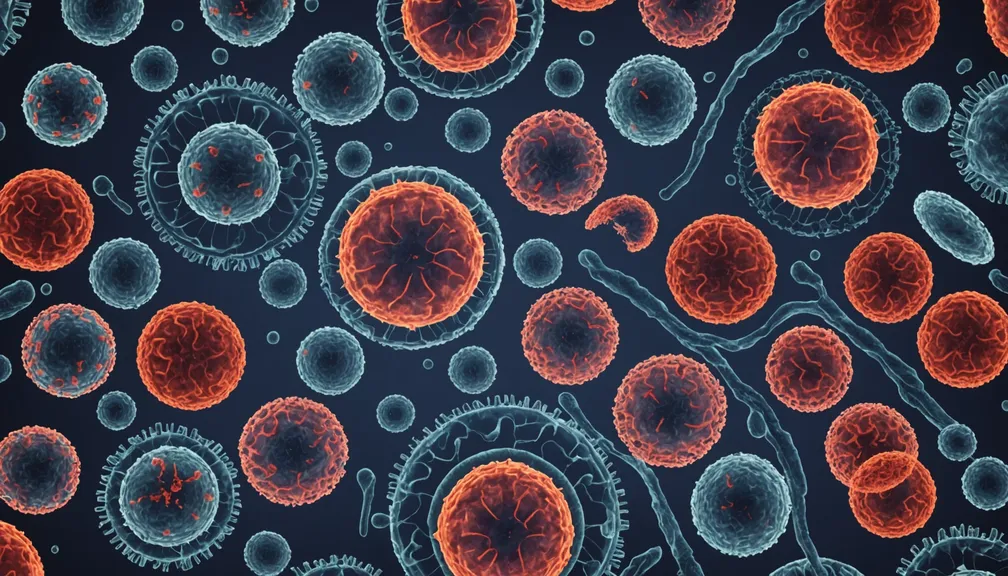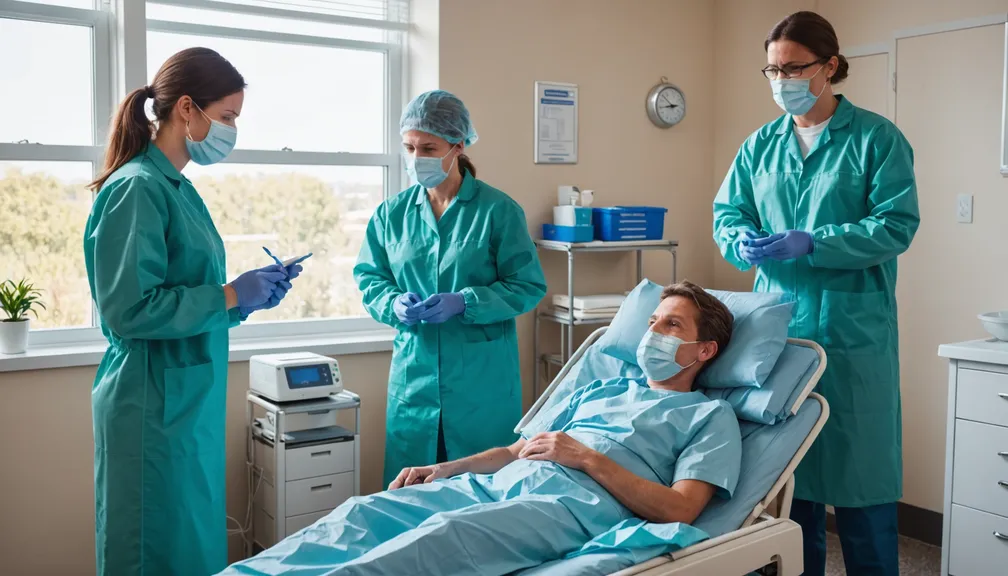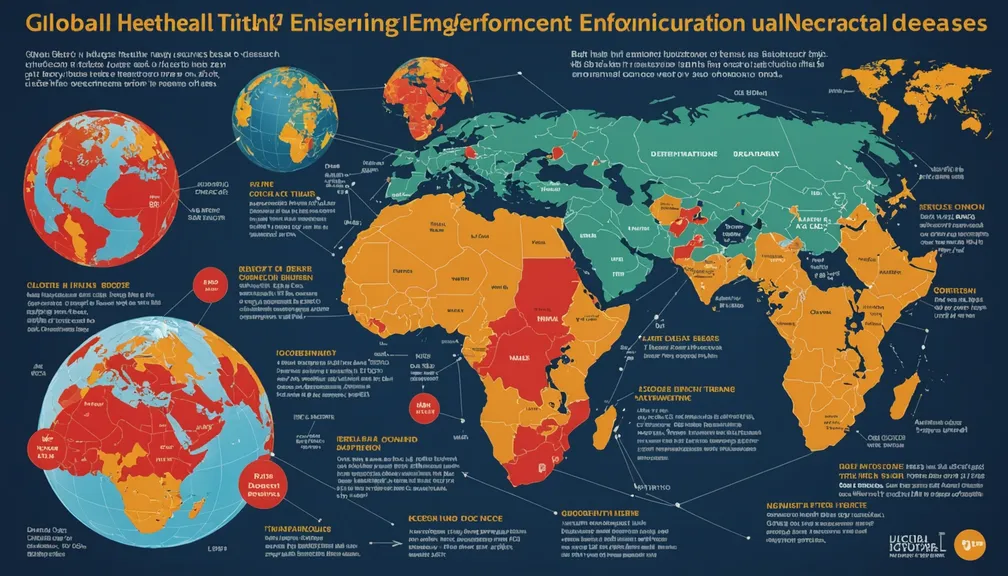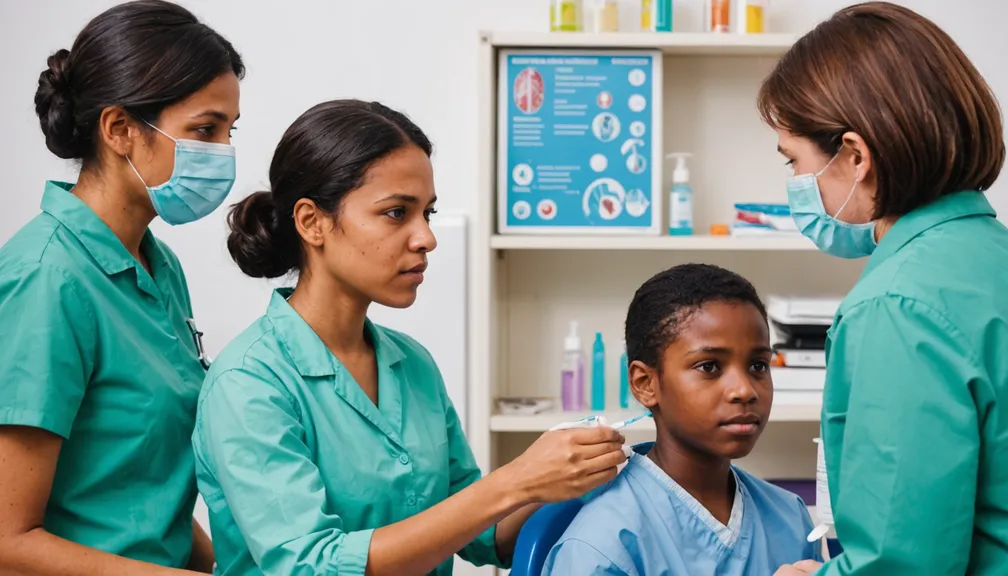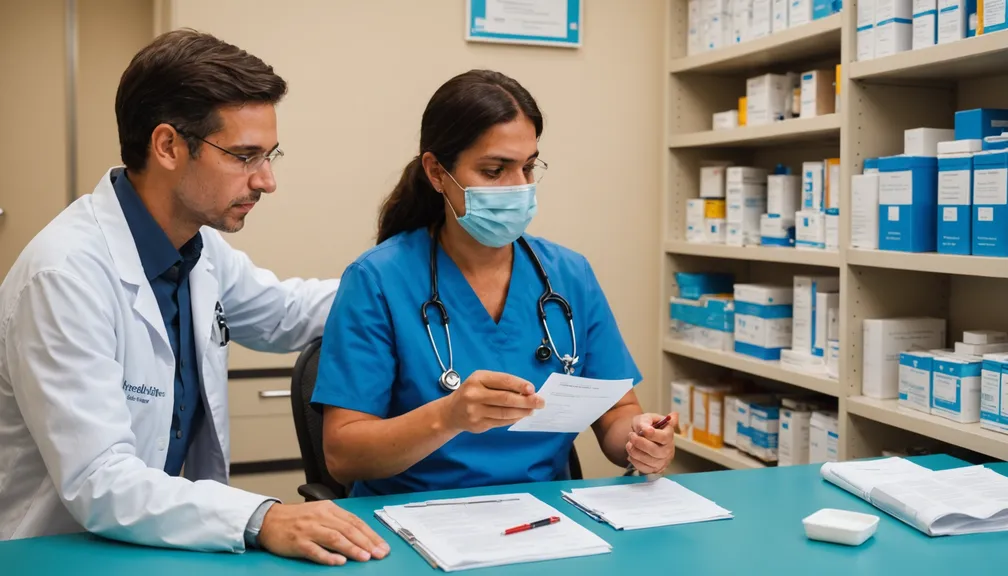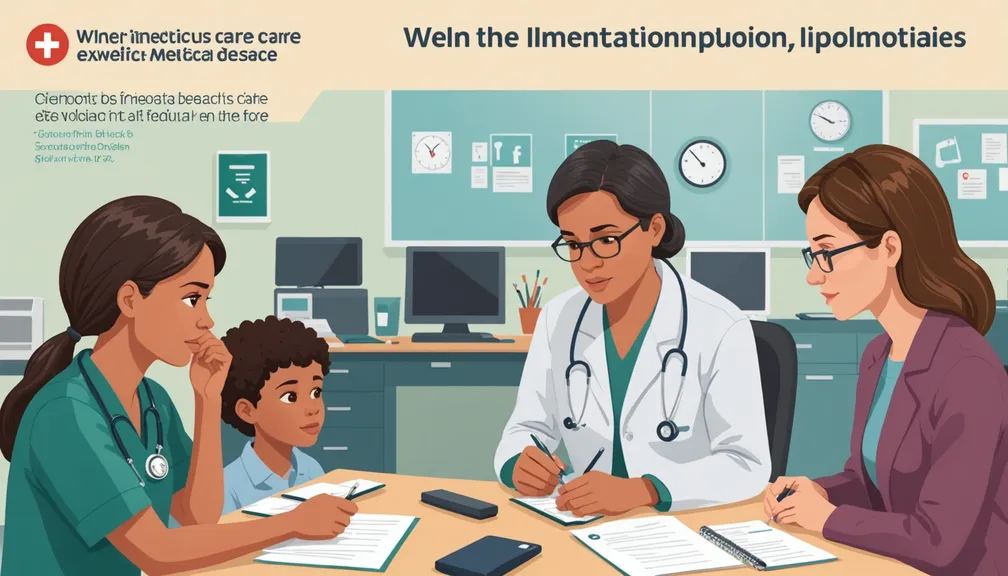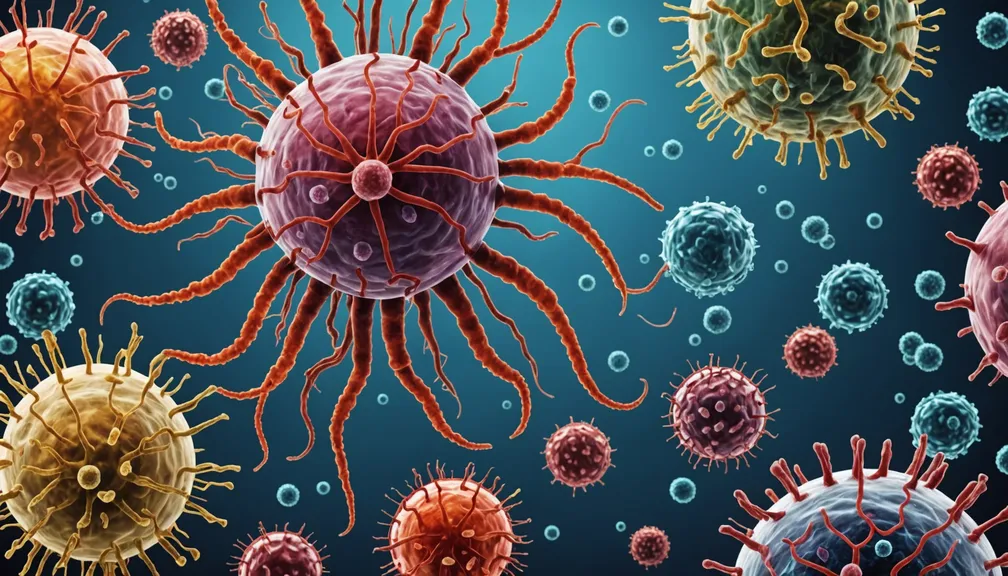Recognizing Symptoms: When to Seek Medical Care
Understanding the symptoms of rare infectious diseases is crucial for timely diagnosis and effective treatment. This lesson will help you identify key signs and determine when it's essential to seek medical attention.
Early Signs of Rare Infectious Diseases
General Symptoms
Rare infectious diseases may present with nonspecific symptoms that can easily be mistaken for more common illnesses. Be mindful of the following general signs:
- Fever: An elevated body temperature is a common response to infection.
- Fatigue: Unexplained tiredness that doesn't improve with rest.
- Muscle Aches: Persistent muscle pain without obvious cause.
- Headache: Severe or unusual headaches that differ from your typical patterns.
- Gastrointestinal Issues: Nausea, vomiting, diarrhea, or abdominal pain without a clear reason.
Specific Symptoms
Certain rare infectious diseases have unique symptoms that can aid in their identification:
- Prion Diseases (e.g., Creutzfeldt-Jakob Disease):
- Rapidly progressive dementia
- Loss of coordination and balance
-
Involuntary muscle movements
-
Zoonotic Infections (e.g., Nipah Virus, Hantavirus):
- Flu-like symptoms progressing to severe respiratory or neurological issues
- Unusual bleeding or bruising
-
Acute kidney injury
-
Chagas Disease:
- Swelling at the site of infection (chagoma)
- Palpitations or arrhythmias
- Digestive system abnormalities
Indicators to Seek Medical Care
Recognizing when to consult a healthcare professional can make a significant difference in outcomes. Consider seeking medical care if you experience:
When Symptoms Worsen
- Persistent Fever: A fever that lasts longer than a few days or spikes repeatedly.
- Increasing Weakness: Progressive fatigue that hampers daily activities.
- Severe Pain: Intense or worsening pain in any part of the body.
Persistent or Unusual Symptoms
- Prolonged Gastrointestinal Issues: Ongoing nausea, vomiting, or diarrhea that doesn't resolve.
- Neurological Changes: New or worsening confusion, seizures, or loss of consciousness.
- Skin Changes: Unexplained rashes, lesions, or discoloration that spread or intensify.
Exposure to Potential Pathogens
- Contact with Infected Animals: If you've been in close contact with wildlife or domestic animals showing signs of illness.
- Travel to High-Risk Areas: Visiting regions where certain rare infectious diseases are more prevalent.
- Exposure to Contaminated Materials: Handling or being exposed to materials that may carry uncommon pathogens.
Types of Healthcare Professionals to Consult
When dealing with rare infectious diseases, seeking specialized care ensures appropriate diagnosis and treatment. Consider consulting the following professionals:
- Infectious Disease Specialists: Experts in diagnosing and treating complex and uncommon infections.
- Primary Care Physicians: Your first point of contact for general health concerns and referrals to specialists.
- Neurologists: For diseases that affect the nervous system, such as prion diseases.
- Epidemiologists: Specialists who study disease patterns and can provide insights into rare infections.
Preventive Measures and Precautions
Preventing rare infectious diseases involves awareness and proactive measures:
- Hygiene Practices: Regular handwashing and maintaining cleanliness to reduce infection risk.
- Safe Handling of Animals: Use protective gear and follow guidelines when interacting with wildlife or domestic animals.
- Vaccinations: Stay updated with recommended vaccines, especially when traveling to areas with endemic rare diseases.
- Avoiding Contaminated Areas: Steer clear of regions known for specific rare infections and follow public health advisories.
By staying informed about the symptoms and knowing when to seek medical care, you can take proactive steps in managing your health and addressing rare infectious diseases effectively.
